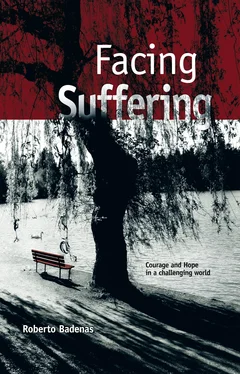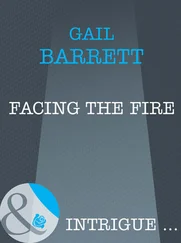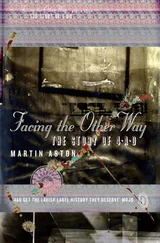Friends or foes, pain and suffering always need to be taken seriously.
Pain, a personal experience
Although pain repulses us all, it has different effects on each individual. We don’t all suffer in the same way. It could be said that instead of kinds of “pain” or “suffering” there are people who suffer. My pain or that of any other person is always a personal experience. Perhaps there is no experience more personal than that of suffering. It affects the whole being: the body and the spirit. Whether physical or spiritual, pain reminds us of the fragility of our existence; it focuses our attention on our own discomfort and turns getting rid of it into the highest priority.
Pain and suffering are perhaps the human experiences that most isolate us from others. No matter how much we may have read about the subject or how well we are able to sympathize with those who are suffering, their pain will always be theirs alone, personal and unique.
In reality, there is no way to share pain.10 Our suffering is a circle that is closed to the outside. “You cannot feel the pain of any other, nor can any other experience yours […]. Holocaust, famine, pandemics…. It does not matter. Suffering always comes in individual packages.”11
Our difficulty in understanding pain is further complicated by the fact that, permeating all the aspects of our being, it affects our objectivity to a greater or lesser extent. Whether it comes upon us suddenly in an accident or we get forewarning with a chronic illness, we are never prepared for pain: it disrupts our lives and can paralyze it completely.
Each time pain comes crashing into our lives, we somehow become passive victims of what is happening to us. No matter how responsible we are for its causes, we always perceive it as an intruder attacking us.
How much does it hurt?
Pain is a very difficult sensation to measure. Measuring its intensity is still very random and differs considerably from one patient to the next and from one doctor to the next. Reliable techniques for measuring pain are very recent and are still not well-known or completely recognized.
Nor is it easy to compare some discomforts with others and assert that one kind of pain is worse than another. For example, an intense but short-term pain, like that in many natural births, kidney stones, etc., versus the rooted pain, much less intense, but much more persistent, of certain types of cancer or arthritis.
Chronic pain, albeit relatively moderate, can become unbearable precisely because of its duration. It affects a large percentage of patients for different lengths of time, during which it radically alters their lives.12 Chronic pain interrupts sleep, reduces mobility, impairs the ability to work and affects even the most daily routines like getting out of bed or going up and down stairs. Even walking can become an ordeal. Suffering from chronic pain without knowing the cause or without finding relief disrupts normal life and can even cause severe cases of depression and anxiety.
Reactions to pain
Attitudes toward pain are almost as varied as the people suffering from it. It is difficult to generalize on the subjective aspects of pain, because there are as many kinds and degrees of suffering as there are variations in sensitivity thresholds. Certain medical conditions can be borne incredibly well by those individuals who have suffered the most and particularly feared by those who have suffered less. Because of this, the assessment of suffering is very relative and varies by populations, individuals, and cases. In some wars, soldiers who went under surgery without anesthesia didn’t seem to feel more pain than that caused by their wounds. In certain ethnic groups, there are woman who give birth and go on working almost as if nothing special had happened.
Suffering transcends the personal circumstances of those experiencing it. As H.G. Wells wryly observed, “The Royal Crown cures not the headache.”13 This poses many interesting theoretical questions, though they are totally irrelevant from a practical point of view. Who suffers more, men or women? Adults or children? The young or the elderly? The well-informed or the ignorant? Believers or non-believers? And so on.
Because it affects us in such a personal way, when we suffer we tend to think that the adversity befalling us is unique, that no one else suffers like we do, or that our pain cannot be compared to any other. And that’s how it is, in a way.
Our developed societies have battled physical pain with undeniable success. Medicine and pharmaceuticals are changing the experience of pain into a technical problem. So they are to be blamed, fairly, for the risk of reducing pain to a mere malfunction of the body.14 But pain is a broader problem that affects the absolute uniqueness of human beings. In fact, no physiological law can entirely account for this experience.15 The privileged beneficiaries of what we call a “state of well-being,” we systematically resort to the healthcare system in our fight against pain, as if it were a fundamental right. Doctors prescribe us medications that take away our physical discomfort. Psychological therapies soothe our emotional problems. And if they don’t, drugs help us escape, even if momentarily, from our painful reality.
Today, in the West, the statistics on the use of painkillers and sedatives are on the rise. Other societies and other times have dealt with pain in ways that to us seem too resigned and cruel, attributing religious or spiritual dimensions that become more and more difficult for us to understand. They have regarded suffering and pain not as mere health or medical issues but rather as existential problems. But in our post-Christian world, the cures have ousted the curates. Medications and therapies have taken the place of fasting and prayer, and they have become the modern substitutes for what, in another time, depended heavily on personal strength, self-control, or faith.16
Is it true that no one wants to suffer?
Although in theory we all seek well-being and each one of us fights against pain in our own way, in reality suffering is also fostered. It is surprising to discover how determined we are to stay in situations that cause us suffering, and how much energy we are capable of exerting to maintain the causes of our problems.
Let’s look at a simple example. A child has a loose baby tooth that is about to fall out, but it doesn’t really hurt if he doesn’t touch it. Nevertheless, he feels the need to touch the tooth constantly (with his tongue or with his fingers), as if he wants to make sure that the pain is still there!17 At a much more serious level, countless victims of ailments that are a direct consequence of bad habits (diet, tobacco, alcohol, lack of exercise, etc.) would like to stop suffering, but they want to do so without changing their lifestyles. Instead of attacking the cause of their ills by changing their habits, they prefer to seek surgery or miracle cures that might free them from their undesirable consequences.
There are types of suffering that take forms similar to masochism. They are fostered by those individuals who gain some advantage through them. Many types of dependency, including forms of selfdestruction—some quick and some slow—“excuse” the patient from having to deal with unresolved problems, putting on others their own inability to solve them. There are degrees of illness whose seriousness silences any criticism or reproach against the one who is suffering, regardless of the cause of the situation.
That makes certain chronically ill persons acquire a kind of “dependency” that makes them less responsible than they would be if they were more autonomous. Through their behavior, by arousing pity, they get the help they want without having to ask for it.18 In some cases, their very suffering provides them with the perfect tool to punish someone—spouse, children, or parents—blaming that person indirectly for their own problems.
Читать дальше












